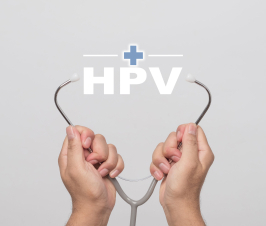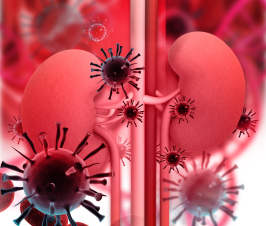Dr. Natalie Bozinovski ND. MSc.
Sex shouldn’t be embarrassing – it’s on fire…it’s healing…George Michael wants it, Rihanna loves the smell of it, and the Divinyls are thinking about you and touching themselves. But despite song lyrics like those, talking about sex doesn’t come easily to all of us.
Nonetheless, if you find yourself wondering about any of the questions I listed below, it might be time for a trip to the doctor’s office for some good old fashioned sex-ed.
1. Am I risking infection with anal play?
Anytime you engage in sexual behavior with a partner, you are exposing yourself to potential infections. This means oral-genital, oral-anal, genital-genital, genital-anal…(you get the picture). Not only do you have to worry about typical STIs, but because of the connecting anatomy, you need to worry about other bacterial infections like E. Coli, Shigella or Salmonella. Washing with soap and water is a good idea to ensure the area is clean before attempting oral or manual play. Wear a condom if you’re going to have anal sex. Avoid moving from the anus back to the vagina or change condoms before you do so.
2. Do condoms protect you against all STIs?
This is VERY important, so read up. When used properly condoms protect against the transmission of STIs like HIV, Hepatitis B, chlamydia, gonorrhea, syphilis, herpes simplex virus (HSV), human papilloma virus (HPV), etc. Certain infections, like HSV and HPV can be transmitted from skin to skin contact and can be present in areas that aren’t covered by condoms. In these cases, condoms can’t necessarily prevent infection. If you’re sexually active, have open conversations with your partners, see your doctor for regular checkups (or to investigate new lumps and bumps).
3. Do other forms of birth control protect against STIs?
The answer to this question is an emphatic “NO”. Condoms protect against STIs via a barrier function (ie. a sheet of, usually latex, that prevents viruses or bacteria from passing from one partner to the other via skin to skin contact or sexual fluids). Other forms of birth control are hormonal, so they can affect ovulation, and therefore, can prevent pregnancy, but have no effect on the transmission of infectious disease.
4. Is there a cure for all STIs?
No. Bacterial infections, like Chlamydia and Gonorrhea, can be treated with antibiotics if identified in a timely manner. Other STIs become chronic infections. Do you remember that scene in The Hangover when the dad is bidding his future son-in-law farewell just before they leave for Vegas? He says “Remember, whatever happens in Vegas stays in Vegas, except for Herpes, that sh*t will come back with you”. Unfortunately, Herpes is considered a lifelong infection. In this case, treatment becomes more about management vs. cure. The number of flares you experience usually declines with time and can also be reduced using medications, supplements, diet, and lifestyle changes.
5. My vagina smells fishy. Is this normal?
There are a lot of [bad] jokes about “fishy” smelling vaginas, but let’s stop for a second. Your vagina shouldn’t smell like fish. In fact, that’s usually a sign that the bacteria living in your lady parts could be imbalanced. A fish smell, in particular, indicates a condition referred to as, bacterial vaginosis or BV. If you’re showing symptoms of BV, you might complain of vaginal odor and milky-white or grey thin vaginal discharge. The odor can become worse around your period or after unprotected sexual intercourse. You can also have BV and not show any symptoms.
6. I’m an adult male with an uncircumcised penis. I heard that it this might predispose you to certain infections. Should I have a circumcision?
The data on preventing infection is not strong enough to recommend routine circumcision. Both the Canadian and American Pediatric Societies state that the benefits do not outweigh the risks. Though it is a personal choice, and you can elect to do so, as long as you are practicing good hygiene, there is no medical reason that you should elect to have a circumcision.
7. I get urinary tract infections (UTIs) A LOT. Is that normal?
Though I hate using the words “normal” vs. “abnormal”, I’ll say that frequent UTIs are not ideal and are an indication that the genito-urinary system needs some attention. First, the current infection needs to be addressed, so that it doesn’t cause complications. Second, we would want to ensure proper hygiene practices are in place, that there is enough good bacteria in the system, and that hormones are in balance so we are addressing potential root causes of the recurrence.
8. It burns when I urinate. Is something wrong?
Pressure, frequency, pain or burning urination can be signs of a urinary tract infection. Book an appointment with your physician to get tested.
9. I’m a woman and I’ve never had an orgasm during sex?
Believe it or not this is a common problem among the female gender, primarily because of the positioning of the female anatomy. It can usually resolved stimulating the clitoris more directly. You or your partner, can practice direct stimulation, using your hands or toys. Try mimicking the movements that allow you to orgasm during masturbation or using your hands to guide your partner’s.
10. What can a man do to last longer in bed?
The solution to this problem is all about recognizing when you’re getting close to orgasm. When you’re more aware, you can change your behavior in order to slow things down, like taking a break from intercourse, changing positions, or focusing on pleasuring your partner. If you’re not already, try wearing a condom to reduce the sensation. Pulsating your PC muscles (the ones you flex when you want to stop urination) can also help slow orgasm.
11. I noticed a new bump on the outside of my vagina. Do I have an STI?
Bumps can mean STIs, but they can also mean non-sexually transmitted things like molloscum contagiosum or folliculitis. Don’t try to diagnose yourself using Google images, take a trip to your local physician and get an accurate diagnosis.
12. I’ve lost interest in having sex with my husband. What do I do?
This happens to many couples, especially if you’ve been together for a long time. It’s natural to get into a routine and to experience less of that fiery desire you recall from your dating days. Take some time to think about what’s going on for the both of you and open the lines of communication. Are you exhausted from changing diapers and running after toddlers? Are you stressed and distracted because you took on new projects at work and are having trouble managing your new role? Are you harbouring resentment about your partner not carrying his weight around the home? Women’s desire to have sex is extremely connected to our state of mind and emotional state (and men too!), so talking to him can be the best starting point.
13. I was diagnosed with a sexually transmitted infection. Do I need to tell my partners?
You don’t need to tell your partners if you’re too embarrassed, public health will anonymously do it for you. But please have someone share the news so that we can reduce the number of new infections that happen each year.
14. My penis is 5 inches, am I small?
You are right on the average! Studies usually report the average length of an erect penis to be approximately 5 – 5.5 inches in length.
 Dr. Natalie Bozinovski ND MSc., is a licensed Naturopathic Doctor, Master of Nutrition, published author, speaker, and founder ofwww.healthandthecity.com, a web-based resource designed to provide fresh insights, tools and guidance to busy professionals on how to make wellness a daily habit.
Dr. Natalie Bozinovski ND MSc., is a licensed Naturopathic Doctor, Master of Nutrition, published author, speaker, and founder ofwww.healthandthecity.com, a web-based resource designed to provide fresh insights, tools and guidance to busy professionals on how to make wellness a daily habit.
Known for her personal warmth, comprehensive knowledge across multiple disciplines and an unwavering commitment to her patient’s success, Dr. Natalie’s ultimate ambition is to help individuals achieve optimal energy and lifetime wellbeing.
In clinical practice, her approach is based on a personalized evaluation of the patients physical, emotional and lifestyle goals. By blending an integrated knowledge of complementary medicine and biomedical science with specialties in nutrition, Chinese medicine, acupuncture and botanical medicine, Dr. Natalie believes high-quality health care must be evidence based and individualized.
With a practice focused on patients overwhelmed by stress and experiencing depleted energy, Dr. Natalie treats a variety of concerns including insomnia, weight optimization, skin issues, mood changes and anxiety, digestive complaints as well as a range of female-specific health concerns.
Dr. Natalie has an Honours B.Sc. with Distinction in Biomedical Sciences and Economics from the University of Waterloo, a Master’s degree in Nutritional Sciences from the University of Toronto and a Doctor of Naturopathic degree from the Canadian College of Naturopathic Medicine. She is trained in First Line Therapy®, live blood cell microscopy, and cosmetic mesotherapy and facial acupuncture for anti-aging.
Having grown up with a Naturopath/Chiropractor father, Dr. Natalie has both a personal appreciation and direct experience of the benefits of complementary medicine to both a healthy body and a healthy mind.

















